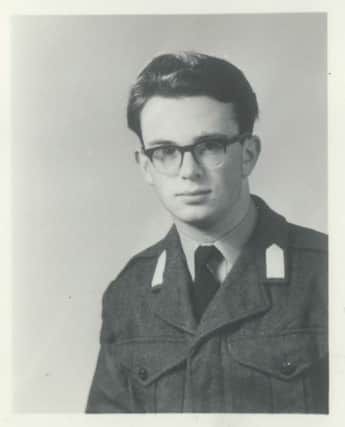Obituary: Dr Martin Nile Clark, military linguist and Italian history scholar was also cricket umpire


Martin Clark, acknowledged as one of the UK’s most distinguished scholars of modern Italian history and politics, died in Edinburgh on 5 August 2017 after a two-year battle with Parkinson’s disease.
Clark was born in Worthing in 1938 and evacuated to Llandudno, North Wales, during the war. Growing up to speak Welsh gave an early start to what became his formidable linguistic repertoire. It was no surprise that, on National Service in the RAF, he was selected to join the Joint Services School for Linguists, to learn Russian at Crail. While this undoubtedly put Scotland firmly in his sights, there was a disadvantage.
Advertisement
Hide AdAdvertisement
Hide AdCrail dovetailed with the world of signals intelligence and this was a ‘hot’ period in the Cold War. Martin believed (almost certainly correctly) that his name would be on a KGB list and that travel to such art treasures as The Hermitage at St. Petersburg would be unwise.
Clark went up to Peterhouse, Cambridge in 1958, winning the Lady Ward Scholarship, and took a distinguished First in History, graduating in 1961. He then worked for the British Council, deploying his linguistic and cultural expertise in several European countries, and greatly enjoying cultural tour-guiding. His interest in Italy was stimulated by the late Denis Mack Smith, his supervisor at Peterhouse. Clark also undertook doctoral research under Eric Hobsbawm at Birkbeck College, London, on the Italian [Turin] factory workers’ movement, which formed the basis for his later book Antonio Gramsci and the Revolution that Failed (1977). In 1965 he was appointed Lecturer in the recently established Department of Politics at the University of Edinburgh, being promoted to Reader following the publication of his magisterial and highly-regarded Modern Italy (1984) – now in its third edition.
Other important contributions included The Italian Risorgimento (1998) and, after his retirement from full-time post, Mussolini (2005). These entailed many research visits to, among other places, Italian official archives in Turin, Florence and Rome.
All, as well as his many contributions to edited volumes and to learned journals, were marked by impeccable scholarship and a wry take on the ironies of human affairs which some mistook for cynicism.
Many of his former students have cause to be grateful to him for his rigour. Not one to suffer fools gladly, Clark was no friend of ‘fashionable’ trends or of what he might consider dumbing-down of educational standards.
His many outside interests included the Scottish hills and the arts widely, including music, painting and theatre. By no means least was his lifelong passion for cricket: he was particularly proud of having seen Bradman bat. He served as an umpire in the East of Scotland cricket leagues and was an avid spectator, especially at the beautiful Carlton Cricket Club around the corner from his home.
It is perhaps appropriate that someone not averse to occasionally ‘rocking the boat’ should also have been a strong supporter of the RNLI.
He is survived by his wife Ruth, sons Adam and Ivan, and four grandchildren, Layla, Nicky, Theo and Willsy.
Dr Clark’s funeral service will take place at 11am on Tuesday 29 August, at Seafield crematorium in Edinburgh.
Richard McAllister